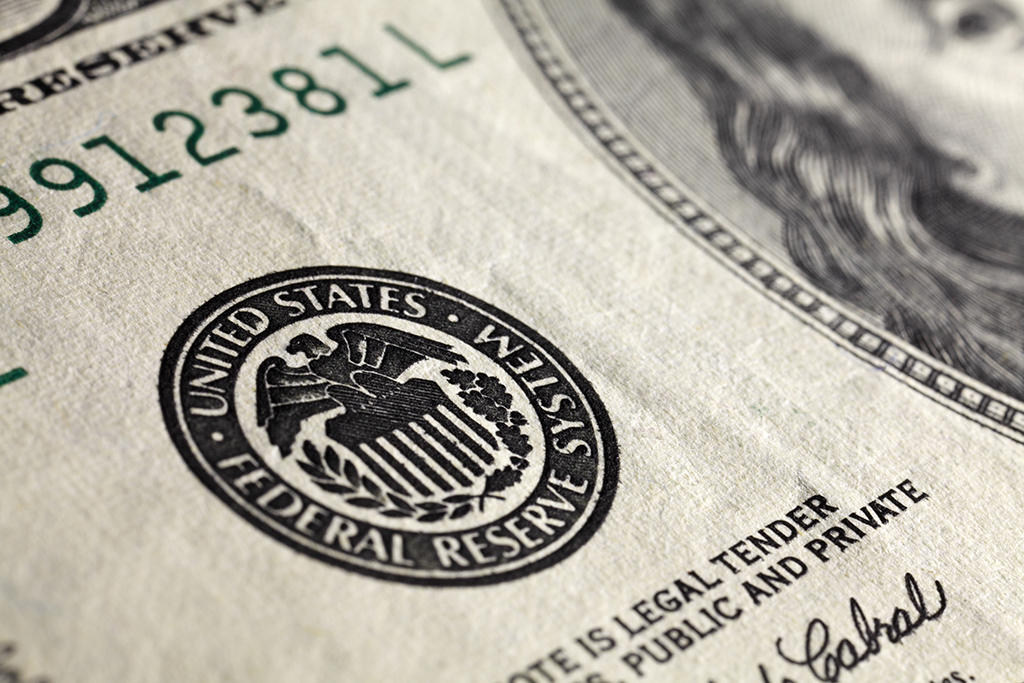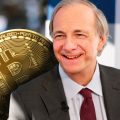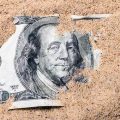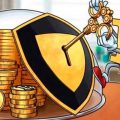Ludwig Wittgenstein once asked a friend: “Tell me why they say that it is more natural to think that the Sunrevolves around the earth, and not the earth around the sun?". The friend said, "Obviously, because the sun appears to be revolving around the earth." Wittgenstein replied: "What would it look like if the earth seemed to revolve around the sun?"
Reality inferred from semantics
Since Bitcoin, four years later, againbegan its run, one should prepare for the sudden interest from the ill-informed masses. Many open-minded newcomers will come - as we all once were - but also many representatives of the old system will come up who will insist that what we see with our own eyes does not really exist, because, according to their theory, it is impossible.
Bitcoin cannot be a store of value,because it has no value of its own. It cannot be a unit of account, because goods and services are rarely valued in it. It cannot be a medium of exchange because it is too volatile. These are three qualities of money, and therefore Bitcoin cannot be money. But Bitcoin has no other reason to value it, and therefore it has no value. Q.E.D.
I call this argument"Deducing reality from semantics". How can you refute this?Essentially, this is a statement about the material world, about what will happen - or, in this case, will not happen - in real life. Yet the statement appears to rely on the meaning of the words. Discussing dollarization in Ecuador - an instructive process of how "official" money was replaced by simpler and better ones - Larry White talks about those who deny such a possibility by definition, that they"They only look at the board, and not at what is happening outside the window"... This is a curious approach to understanding new phenomena that I generally would not recommend. Reality doesn't care how you describe it.
But there is also a softer, quirky,an agnostic form of semantic theory that recognizes that something is happening: Bitcoin is nothing, but it definitely cannot be money because it is so unlike the standard (semantic) view of what money should be and how it should behave that such a statement is too inconvenient to accept. It is definitely a kind of network: it is global, digital, open and programmable. And it has undeniably increased in value since the time in the past when it was worth nothing at all. But is it any different from a typical financial bubble? Can money behave like a bubble? And is Bitcoin's digital nature really such an advantage? Isn't the Internet fueling the rapid growth of the bubble of anything that is digital, open, and programmable? Perhaps bitcoin is something - for example, the "blockchain technology" on which it is based? - but obviously it doesn't seem like money.
Wittgenstein would not have been impressed. He probably would have asked:
"What would it look like if it seemed that global, digital, open, programmable money is monetized from absolute zero?"
Let us ask ourselves this question.
Times change

: Unsplash
Semantic theory is frighteningly static.This staticity is rooted in semantic tricks. Many languages have different verbs meaning “to be” or “to be” depending on whether a quality is permanently or temporarily present, such as ser and estar respectively in Spanish. In others, such as English or Russian, there is no such distinction. I'm a man (I'm a man) and I'm hungry (I'm hungry). But in what sense is Bitcoin volatile? Is it volatile by nature or at some point, in some circumstances, relative to some standard? Do goods and services offer some fundamental resistance to Bitcoin valuation? What happens if you try to evaluate them? Would this be like dividing by zero?
Imagine if everyone deserved respectbusiness knowledge was based on studying large, established companies because there were no startups in living memory. If a startup then appears, they may well say:"This is not a business because it is not profitable", or"This is not a business because it does not have a clear business plan."... Obviously this would be unwise.This does not mean that such models and definitions will be completely wrong; it's just not that binary. Reality is more complicated, and it is reality that should worry us, not our theories about it, which, as it turns out, have not been truly tested ...
This article is the first of three parts.In it, I propose to abandon the self-confident knowledge that new money cannot appear, because reality follows from our semantics. Hopefully, by embracing uncertainty and uncertainty instead and focusing on satisfactory behavior and circumstances, we will have tools that will allow us to recognize the emergence of bitcoin, instead of denying it as a rebuttable theorem.
Apples, Zebras and Knowledge

: Unsplash
Let's start with a thought experiment.Imagine that you can see the future in a very specific and economically relevant way: you know how everyone will value any thing at any given time. Are you sure about that. Will you need money? Let's explore.
If you know how you will evaluate differentthings, then you know what you will want to buy at any time in the future, say Alice's apples. This usually requires money because Alice may not value what you have in exchange for, say, zebras. But in this case, you know how Alice will evaluate zebras, because you know how she will evaluate everything. If that's enough to buy apples, great. If not, find something she values more, like beer, and go to Bob for it. If Bob doesn't appreciate your zebras either, that's okay, because you can just keep going until you complete the circle. Because you know all the cost estimates, you can instantly understand the best path from zebra to apple and make a series of trades until you get what you want. If these estimates fluctuate over time(which you also know), you can plan your deals so that you get the best rate.
The obvious objection is that all these unnecessarytransactions are very inconvenient. Money may not be necessary, but it will still save time and energy, because instead of calculating the chain of the most profitable deals before each purchase, you can immediately turn to the one who values zebras the most, get the money and go to Alice. Better yet, you can sell zebras when their value is at their peak, and then hold the money until you want to buy apples. That is, money is still useful.
But now imagine that sucheveryone possesses superpowers. Everyone knows that at any given time, everyone else is appreciated. Do you need money now? You go to Alice with your zebras to get some apples. Does it matter that Alice doesn't need zebras? I don't think so, because now Alice also has a superpower. If she doesn't want zebras, then she knows that Quintin needs them. If she wants Quintin's buns, perfect. If she wants Peter's pies instead, then luckily Peter also knows that Quintin needs zebras. If he wants Quintin's buns - great, if not ... In other words, you no longer need to carry out an inconvenient chain of the most profitable deals - the main thing is that it exists so that everyone can determine the current exchange rate between what they have and what they want to buy. This knowledge makes money unnecessary.
If we believe that some especially economicallya discerning person can theoretically know all future prices, then we will be forced to admit that he also knows all future events. How can he know at what time Alice will value certain goods at an arbitrary moment in the future, if he does not know what goods will exist at all?
This is the key to our thought experiment.No one can know all future events, as well as the whims of all strangers. Generally speaking, we can hardly know about any future events or the whims of any strangers. One can reasonably be sure of events that are close to us in time and circumstances, but the further from what we are directly familiar with, and / or the further into the future, the less we may know. Therefore, we can guess what our loved ones value now, but we cannot know what those whom we do not know so well value, or what someone will value in the future. If we knew this, the money would not be needed. But since we cannot know this, money is useful.
This shows that"Double coincidence of needs", which makes barter untenable inon a decent scale, has little to do with “convenience” and is primarily a consequence of knowledge. We can have only a limited idea of the assessments of others, and this idea is weaker the more distant they are from us in circumstances or in time. And note that this includes our future selves; we cannot be sure what we will value in the future because we do not know what will happen to us in the future.Money is useful because of economic insecurity - our fundamental inability to know what others are thinking and what will change in the future.
Ideally, money should be given to its usersa sense of certainty about the future is a kind of tacit agreement with the rest of the economic network, precisely because it is almost impossible to know for sure in order to agree on something in advance. But if new money emerges, it will in fact challenge this agreement and, therefore, will be accompanied by uncertainty in the initial period. Their very existence will represent a kind of disagreement that can cause confusion and disorientation.
This uncertainty can be used asargument against new money and continue to argue that the desired network effect cannot be achieved. But this would be an evasion of the well-founded question of whether to accept the increased uncertainty in the short term in order to gain better confidence in the future if the network effect can develop. Everything will depend on the real benefits. Here, a theoretical answer based on equations and definitions is impossible - especially those that are absolutely valid precisely in conditions of zero competition, maximum confidence and staticity - in a universe inexplicably devoid of entropy. It makes no sense to describe new money as a useful "medium of exchange" from the outset - although in the long run, the digital nature certainly won't hurt their chances in this regard ...
Potential new money means a chancefor better confidence in the future with the recognition of increased uncertainty in the present. This can seem like a dangerous and compelling narrative as it is a provable guarantee.
Purchasing power in a changing world

: Unsplash
But how useful can money be inmeeting the demand for certainty? It makes sense to think about what means that money is more or less useful in this regard, but attempts to measure this usefulness can lead to a philosophical dead end. Since this utility is understood as an evolving response to constant and unpredictable change, care should be taken in choosing a yardstick that remains constant throughout the process. We shouldn't use a stretchable ruler. It is worth looking a little deeper to avoid going back to semantic theory and demanding that money be a store of value without further exploring what it might mean to be a store of value in practice.
As a starting point, let's say that it ismeans that potential money retains its purchasing power over time, that it does not depreciate on its own like breaking tools or perishable food, and does not lose value for less obvious reasons, such as going out of fashion, like clothing, jewelry, or real estate in a declining city ...
We immediately run into problems: note that"Maintaining purchasing power"whatever it is just depends on the changes,which we admit we cannot predict. It all depends on the circumstances, behavioral factors and subjective assessments of other market participants. A depreciated instrument may become more valuable if a new use is found for it or if it becomes scarce. Food that has spoiled may be worth more as compost—perhaps creating a compost shortage—or you may find that it actually tastes better after a certain period of time. Clothes, jewelry, or real estate can come back into fashion and increase in value just as easily as they fell out of favor before.
There is also one more complication:do we want the inability to maintain purchasing power to reflect how money is valued less relative to what we might want to buy, not how everything else goes up in value? In other words, money becomes less useful and not everything else becomes more useful. In the latter case — for example, if the real value of everything rises due to war or natural disaster — it is hardly reasonable to describe the likely resultant price increase as a depreciation of money rather than an increase in the cost of producing goods. Assuming an extreme scenario, it is meaningless to expect that the ability of money to "save value" will allow its owner to consume some commodity that is not produced at all, or more than that which is produced.
But that's not all:What if, during the period in which we expect to maintain purchasing power, a completely new product or new service is invented? Will the purchasing power of our money increase indefinitely? And what if some product ceases to be produced or sold at all on the market? Will our purchasing power fall to zero? How to understand all this?
At first it may seem natural that money"Retain purchasing power"if at time t1 one can buy for themthe same amount of all goods and services on the market as at the moment t0. However, upon closer examination, this seems naive: in the case of a new invention, the answer about "infinity" is funny, but completely useless. In the event of a natural disaster, one cannot expect to be able to buy the same quantity of a commodity, because the same quantity cannot be expected to be produced, which is not due to the negative property of money, but to the fact that money accurately reflects negative changes in the economic network. Perhaps it is possible to track changes in the "basket" of goods, but how then to decide what share of each component will be, and how to make allowances for quality improvements? Any choice will be arbitrary and will better reflect the reality of some economic actors than others.
But even in more "ordinary" or "normal"economic conditions are not so simple. Imagine that a certain product - let's call it a widget - hasn't changed at all from time t0 to time t1, but a new invention has come to replace it - let's call it a fidget. Nobody wants widgets anymore because fidgets are so much better, so the widget makers stop producing them and their vendors stop producing the squidgets that make widgets. Since no one produces squidgets, it becomes very expensive to produce widgets, and although there are much fewer of them produced, their price becomes much higher than at t0, before the fidgets appeared.
If you still want to buy widgets, thenyou have lost your desired purchasing power. If you prefer fidgets, then your purchasing power has increased. But it is important that both cases are fundamentally related to decisions to redirect real scarce resources from the production of one product to the production of another. Hoping for an answer that relates only to our individual demand is shortsighted, because prices are dictated by the totality of all demands (and also all offers - people who sell widgets and squidgets are also interested in this!). If any demand or any supply changes - due to new discoveries, changes in tastes or costs, or the emergence of opportunity costs - then the allocation of scarce resources in an attempt to match supply to demand will almost certainly also change, and this is through some kind of feedback in eventually will affect the initial supply and demand.
Can this be resolved?And is it possible to intelligibly describe why it is difficult to resolve? Even before answering this question, it is worth noting that money is subject to the same forces - only this seems much less natural when there is no full-fledged monetary competition, because we use money itself as a yardstick. The polarities of semantic theory are absolutely applicable here. This money pretends to be a unit of account, and while we can gauge how they are accounting, there is little point in asking if they are doing a good job: good about what?
But if new money appears, then it will happenat a certain time, at a certain place, at a certain point in the economic network. They will not appear everywhere all at once, and therefore it makes no sense to describe them as a useful "unit of account" from the very beginning - although in the long run the global nature will certainly not harm their chances in this regard ...
They will be useful in different ways to different people independing on their circumstances, their behavior, their beliefs and the price of this new money itself. Their entry into the supply and demand network will change the allocation of scarce resources, which in turn will affect their own supply and demand. It is shortsighted to hope for an explanation of their cost in terms of individual demand.
Potential new money meansdiversity of views, rapid changes, lack of consensus and unpredictable swings in sentiment as the market continually weighs the relative merits and perceived demerits of the promise of future certainty.
Time, energy and the triangle game

: Unsplash
Have you ever played triangle game?Here's what you need to do: Gather a large group and ask everyone to move around aimlessly. Tell everyone to choose the other two, but not tell anyone about their choice. Then, at the signal, order each one to form an equilateral triangle with the two they chose - and watch the chaos that ensues. Even if at some point it seems that the activity of the network has slowed down, one step is enough to take it out of control again, because others may react to the movement of one person, to which others will react, etc. Each individual decision has consequences that are unpredictable and unevenly distributed throughout the network, and each decision-maker is directly aware of only the dynamics in his small environment, as well as in the network of economic exchange.
Asking an individual to estimate the amount of economica relationship based on only his own supply and demand is like asking a player in a triangle game to explain the average speed of all players based solely on his own next step. This is completely impossible. And here we are talking about a small environment where much remains unchanged; if millions of participants begin to periodically change their choice of vertices and enter and exit the game, and the very geography where the game is held changes under their feet, then this will be closer to real economic activity.
It is necessary to ask the question that the participantseconomic networks give and receive in a deeper sense than the highly contingent and volatile prices they face when buying and selling. What opportunity costs do they all have in common? Consider that instead of accepting a price that literally depends on all the demand and supply on the web, you can always make your own widget. If there are no more widgets available for sale, you don't have to assume that your purchasing power has "fallen infinitely," as long as you can still acquire the necessary resources and the knowledge of how to combine them is still there and available. You can still "purchase" a widget and calculate its cost: the cost of the initial resources plus the opportunity cost of your time and energy, since the time and energy spent making a widget cannot be devoted to making something else that could later would be exchanged for money.
If, on the other hand, the widgets are stillmass produced, you will likely find that the difference between the input cost and the available market price of the finished widget does not justify the opportunity cost of your time and energy needed to transform one into the other. Since widget makers have put a lot of effort into minimizing these very opportunity costs of time and energy in order to stay competitive, you would rather pay the difference than waste that time and energy yourself.
Come to think of it, this process and way of thinkingare the same for everyone who transforms one good or service into another, in order to then sell for a profit: buyers consider the price to be an acceptable equivalent of their time and energy, and the (current) seller considers costs accordingly and considers the expected profit to be the best use of his time and energy that goes to create a product. If we decide to produce our own widgets, whoever we buy the squidgets from will do the same thought process and the same calculations. The same goes for the manufacturers of the gwidgets needed to make the squidgets.
And so on, right up to the very beginning of the chainsupplies of goods or services. If it is a commodity, then it will be the extraction of raw materials, which, if you own land, requires only time and energy; if the service is only time and energy; if you still need some tools, repeat the cycle again. The entire price chain across all exchanges is a series of independent real-time decisions about how to value your time and energy, and assumptions about how others value theirs.
If you go back to trying to create your ownwidget, it's easy to imagine how long it will take if you decide not to pay at all for the initial resources, but to spend exclusively your own time and energy to create everything you need from start to finish. The difference between how you value this enormous amount of time and energy and how much you actually pay for the inputs will be the value created by the money mediating in a much more specialized series of exchanges.
Let's go back to our initial conditions.If the price of widgets has risen because fewer resources are being channeled into squidgets, etc., it really means that many in the economy no longer believe that producing widgets would be the best use for their time and energy. While we can give reasons why they think so, we cannot say that this is objectively true or not. This is as “true” as anything else they have decided to devote their time and energy to in order to earn. Therefore, the unchanging measure we need should not relate to widgets, but to the total cost of time and energy for production, collectively estimated by the final products. Perhaps widgets are important to you, but by the fact that they are produced much less (or not at all), we can say that they are less important to the web. Time and energy are important to the network, but circumstances and behavior have changed how time and energy can be converted.
Readers may have noticed that upon mentioningone question was asked about natural disasters. I said that then the "real" value would rise. But what is “real” value? If we are not measuring value in money, then in what? We now have the answer: in human time and energy. In the event of a natural disaster, we assume that many of the immediate production resources will be destroyed and we will have to devote time and energy to rebuild them if we hope to maintain the same productivity. As a result, the achieved productivity will cost more money because it will take more time and energy.
Consequently, “preservation of the purchasing powerabilities ”as a property of money can reasonably mean only the following: if at time t0 for a certain amount it was possible to buy a certain share of the entire productivity of the economic network, then at time t1 for the same amount it was possible to buy the same share. Regardless of what inevitably changed in the meantime, money is useful if it allows us at some point to invest time and energy in the network, knowing that our share will not be diluted and at any future date we can get it back.
Semantic theory leaves us unfoundedpromises of "cost savings". Who determines this value? And saving about what? It is far more fruitful to understand money as saving time and energy in relation to the economic network that uses it. New money is meaningless to describe as a useful "store of value" from the outset - although in the long run, the solid nature certainly won't hurt their chances in this regard ...
Even if it is obvious that such a contribution will continue,it is not at all clear what will happen to the network itself and therefore how valuable such savings will be in the broader context. But the better money is able to retain such an investment and protect it from dilution, the more likely their network will attract time and energy, and hence value. Semantic theory assumes that the network of established money is mature and all-encompassing, and therefore unable to comprehend how something new can "conquer a share of stored time and energy." If everything is so complicated and confusing in real life, then, of course, it will be complicated and confusing in terms of such static and limited definitions.
The emergence of potential new money willmean that there is such a significant improvement in the dilution protection promise behind seeming extreme uncertainty that it can be argued that it outweighs the inconvenience of early uncertainty.
Money, capital and social scalability

: Shutterstock
Do we really want to get back the sameshare of time and energy in the future? What if a certain fraction of the time and energy in the future produces less than it does now? What good will it do us then ?!
Before completing this article, I would like toconsider perhaps the most serious flaw in semantic theory. Economic change, catalyzed by money, has important implications for money itself. A monetary theory that neglects the possibility of change leaves its proponents in the dark about the most interesting aspect of its own subject of study. The new money that successfully takes into account these opportunities will have a trump card in the long run that can help them overcome the uncertainty they create for themselves in the short run - all of which are ignored by semantics.
First, let's think about how and why it candeteriorate usefulness. A natural disaster, again, is an obvious example. Essentially, the tools are supposed to be destroyed. If we had a tractor that was hit by a hurricane, we would have to use a plow, so it would take more time and energy to get the same performance. If we are limited in time and energy, then we will have to accept less income. Trading our past time and energy for what they can do now seems like an unfair deal. If the plow was also destroyed, and with it the hoe and the shovel, then we practically return to the natural state, where the necessary tools must be created from time and energy as such, without intermediaries.
Thus, if we go back to this originalstate, we see that it is precisely this commitment of time and energy to creating tools that not only increases potential productivity, but also frees up time and energy to continue this process, using these tools to create even more complex ones. We can produce squidgets instead of just widgets. If we free up enough time and energy, we can channel the surplus into gwidgets. With so many productive options, in addition to devoting time and energy directly to basic needs, we can forget our worries and difficulties and begin to specialize in using these increasingly complex tools. Somewhere in this process of complication, money is likely to emerge, because the uncertainty that complexity creates in different circumstances and at different times creates a response demand for certainty that money satisfies.
Of course, this manufacturing process is more complexinstruments are by no means clearly delineated in terms of value. We run the risk of wasting time and energy on a result that will be no more productive than our existing tools, or not at all. Or perhaps it will be productive but no longer be appreciated. But in the same way, we can view the time and energy provided by older tools as a “shock absorber” that absorbs such risks. This can manifest itself literally or, of course, through money: we exchange time and energy, albeit indirectly, for money that we save for the period of experiments with the development of tools, so as not to depend on their results.
However, there will come a point when the skills of individualswill become so specialized, desirable tools so complex, and the inherent uncertainty of their development so great, that we will no longer be able to rely on individuals making them. Realistically speaking, no one has the necessary knowledge to build a tractor on their own.(or even a pencil), not to mention the right time.However, the minimum number of people with the necessary skills may not want to risk that their time and energy devoted to the invention of the tractor may be wasted.
Money can save the day:those who are willing to take risks can pay for their contributions to those who are not. This may sound straightforward to the point of banality, but notice that we are using money in a fundamentally new way: not because we want to protect ourselves from the consequences of uncertainty, but because we want to accept it. The uncertainty in question will not be the result of a coincidence - it will be completely conscious. We want to attract others to economic activity with unknown outcomes, with the opportunity cost of activity that seems much more certain. In essence, we buy uncertainty for certainty.
More precisely, we create capital.Capital is not only complex instruments or money that are used to motivate their creation, but it can be understood as the degree of their fluidity. I believe that Hernando de Soto best described all the subtleties of this concept in his wonderful work "The Mystery of Capital":
“Capital is not accumulated stocks of assets, butthe potential they contain for new production. This potential is, of course, abstract. Before it can be realized, it must be processed and fixed in tangible form. " He further adds: “Capital, like energy, is also a potential quantity. To make it a reality, you need to stop looking at our assets as they are and start thinking about what they might become. This requires fixing the economic potential of the asset in a form that can be used to initiate additional production. "
De Soto focuses on sociological meaningproperty rights while ensuring such a process. For our purposes, we can think a little more abstractly and see the ultimate purpose and role of property rights as providing an economically meaningful certainty that can be measured with money and exchanged for the uncertainty from which we want to benefit. Money provides a way to motivate risk taking in the form of an opportunity cost of time and energy to explore the potential of our assets in the hope of achieving even greater productivity. Both money with high certainty and complex instruments with high uncertainty are capital insofar as they can be freely exchanged for each other.
Capital formation has at least threenotable effect. First, the more capital we manage to create - remember, this is a risky process, and there is no guarantee that we will be able to create it at all - the narrower our individual specialization will be, that is, the less our understanding of supply and demand can usefully extend beyond our own circumstances and into the future. Second, the more capital we just try to create, the more uncertainty we directly invite into the web. Third, the possibility of creating capital in the future, rather than simply postponing consumption, means that the uncertainty we want to embrace through money does not necessarily mean risk, but also opportunity.
That the creation of capital is more or less dependentfrom human ingenuity, means that the chance to participate in capital creation can appear at any time. The desire to be confident that we can take advantage of such an opportunity further increases the usefulness of money, which, of course, further contributes to the creation of capital. For all three reasons, fundamental economic uncertainty will increase. The money, which creates the conditions for the emergence of capital, thus becomes the more useful, the more capital multiplies.
Uncertainty breeds money, money -capital, and capital is uncertainty. Fortunately, this cycle works on the condition that time and energy become more valuable. If money is useful insofar as it allows us to lend our time and energy to the network at some point, knowing that at any moment in the future we can get the same share back, then we should want to get the same share in the future. If money is really useful, then the “cost” of this “same” time and energy will be greater.
This or that money can have qualities,which make them suitable for more or less sustainable capital formation. This provides another, indirect, way of assessing their usefulness: how sustainable is the multiplication of capital that is created on the basis of this money? If money has properties that, for one reason or another, facilitate a response to economic uncertainty, accompanied by reckless or destructive risks to net worth, then this undermines the usefulness of any certainty that is implicitly guaranteed. This is reason to believe that the economic network that that kind of money serves will yield less over time.
That uncertainty plays such a keya causal role shows that the network created by money is much more complex than those to which we are accustomed, and that its "network effect" is also much more nuanced. When you use Facebook, Twitter, Telegram, email, etc., you understand the nature of your relationship with the network. It facilitates your communication with others. Other than that, you don't really care how it works, and it doesn't really affect you in any way. But in the case of money, the mechanisms of the network not only directly affect your interactions with it, but you also cannot know how it works. Each member of the network accepts an uncertainty that you don't understand, so you don't need to understand. We're back to the triangle game. How it affects you depends on how everyone else in the same confusion behaves. In his article Money, Blockchains, and Social Scalability, Nick Szabo explains the concept of social scalability in the title:
"The faculty of the institution - relationship or generalan enterprise in which many people participate repeatedly and which has customs, rules or other properties that inhibit or stimulate the behavior of the participants - to overcome the shortcomings of the human mind and the stimulating or constraining aspects of this institution that limit who or how many people can successfully in it participate. Social scalability refers to the ways and the extent to which participants can think about and respond to institutions and other participants as the diversity and number of participants in those institutions or relationships grows. ”
Money is provided to network memberseconomic exchange is a clear and stable way of how to think about and react to one's circumstances, just as the formation of capital follows from the growth of diversity and number of participants. This growth creates a fundamental uncertainty that goes beyond the cognitive abilities of individuals so that they cannot directly understand and respond to it. While simpler networks are valuable to their users in that they make possible channels of communication that would otherwise be too expensive to create, money makes possible channels of communication that would otherwise be incomprehensible.
If we, as in the case of a social network, knewwith whom we deal in economic exchange, then perhaps we could base such communication on a simpler means of trust than money. But since most of the time we don't know it, the specific social scalability that money provides makes possible what Szabo calls"Minimizing trust", or"Reducing the vulnerability of participants to the possibility of misconduct by other participants, third parties and intermediaries"... Szabo adds:
“Most of the institutes that have passed a longcultural evolutions such as law (which reduces vulnerability to violence, theft and fraud) and security technologies reduce - more generally and more than the other way around - our vulnerability to other people and therefore the need to trust them versus what was before the emergence of these institutions and technologies. "
Because money compensates for the probablelack of trust in our direct economic counterparties and, to a certain extent, in the entire economic network, it is important that we trust the money itself. Effective money"Reduce our vulnerability to other people and therefore the need to trust them".
The emergence of potential new money willmean that their proponents will focus on properties of capital that are completely absent from semantic theory. In semantic theory, money does not change in any noteworthy sense, and therefore the formation of capital is not given proper attention. In the real world, the effectiveness of money can become more or less reliable, uncertainty can become more or less dangerous, and capital formation can become more or less healthy. The emergence of new money is much more likely if all of these characteristics of existing money seem to be getting worse and worse. Openness and programmability will definitely not hurt the chances of new money ...
What if…

: Unsplash
What will the development of potential newmoney? Everything will depend on the relative advantages of existing and new money, but also on how the perception of these advantages, the perception of this perception, etc. will spread. Since the opportunity cost is absolute, you cannot just play with new money as with a new social network, but you need to sincerely believe in them. Consequently, the development of new money for some time may depend on how the network participants think about money in general ...
A proponent of semantic theory will immediately write offnew money from accounts. If they do not act as a means of exchange and a unit of account, then they will not acquire the necessary network effect, which means that they will not be able to save value and, accordingly, be real money. Q.E.D.
But a more sophisticated observer can lessto be interested in definitions and to look more at the conditions of competition between old and new money in real life. He will understand that the value of money is based on economic uncertainty and that the greater the uncertainty associated with its effectiveness, the less useful it is; that the demand for certainty, which they in turn satisfy, means that their value is based primarily on their perceived utility in the future, not in the present; that they must support healthy and stable capital formation; and that their machinery must reliably reflect true scarcity without dilution.
Such an observer may be repelled by the lack ofnew money of immediate utility and the associated uncertainty. Nonetheless, he can recognize the value of the intrinsic reliability of their mechanism and that their transparent and limited dilution provides a useful future certainty that respects the time and energy they seek to conserve. He may be encouraged by their prospects for healthy capital formation and early indications that such capital formation is occurring, and may notice that perceptions of their usefulness are spreading, steadily increasing the size and strength of their network.
As for the existing money, ourthe observer may be concerned that their highly diluting mechanism cannot be trusted at all, that their efficacy is generally very uncertain, and that as this perception spreads, their long-term usefulness and the size of the network are increasingly under serious question. He may reason that, like Esperanto, their sophisticated design can satisfy their creators, but they are fragile and constrained in the real world, while natural languages and natural money arise and develop to satisfy decentralized demand. They correspond to gross reality, not pure semantics. The fact that the creators of artificial money do not seem to understand how important time, uncertainty, knowledge and capital are to money may make our observer even more doubt the quality of their brainchild.
But regardless of his own judgmentmerits, our observer cannot escape the fact that he needs to anticipate the understanding of the merits by others, their assessment of the perception of merits by others, etc. The success of new money will depend precisely on the uncertainty that generates its potential usefulness. This is not just some kind of alternative in the minds of economic participants, but a likely source of dynamic instability. As with any product, we can understand our own supply and demand for new money right now, but we can only have a limited perception of other people's assessments, as well as our own in the future, and this perception weakens as we move away from us in time. and circumstances. When we act on our judgments, our decisions will have consequences that propagate unpredictably across the entire network, unevenly over time. We can know the dynamics of the network directly in our environment, but we can know practically nothing about the consequences of our actions for the network as a whole.
All this means that if there really appearpotential new money, it will seem extremely volatile, irrational and unpredictable. It will look like this from the point of view of any single individual. But we again return to the triangle game: the point of view of one individual does not tell us anything. Perhaps it tells us even less than nothing, because it can seem informative as a snapshot of the dynamics of the entire network. The volatility, irrationality, and unpredictability of new money may seem to destroy its usefulness. However, the perception of one individual does not reflect the whole picture. If an individual acts on the basis of his perception, then this affects the entire network in a volatile, irrational and unpredictable way, which then, through feedback, affects the future perception of the same individual.
I believe that if there really are newmoney will seem to follow an evolving and convoluted narrative rather than obeying a fixed and precise equation. This will happen slowly and sporadically. It will not be a smooth exponential timeline for a popular new social network, because the nature of the “network effect” will clearly be much more complex. In essence, it will be a chaotic and ever-changing proliferation of unpopular views on the nature of money itself. In the short term, it will be (literally) chaos, but in the long term, there will be a tendency to reaffirm the merits that these unpopular views spoke of.
In the following parts, I will evaluate the existing money andtheir competitor, but for now I conclude that if it really seems that global, digital, hard, open and programmable money is monetized from absolute zero, then it will probably look like this ...
</p>




